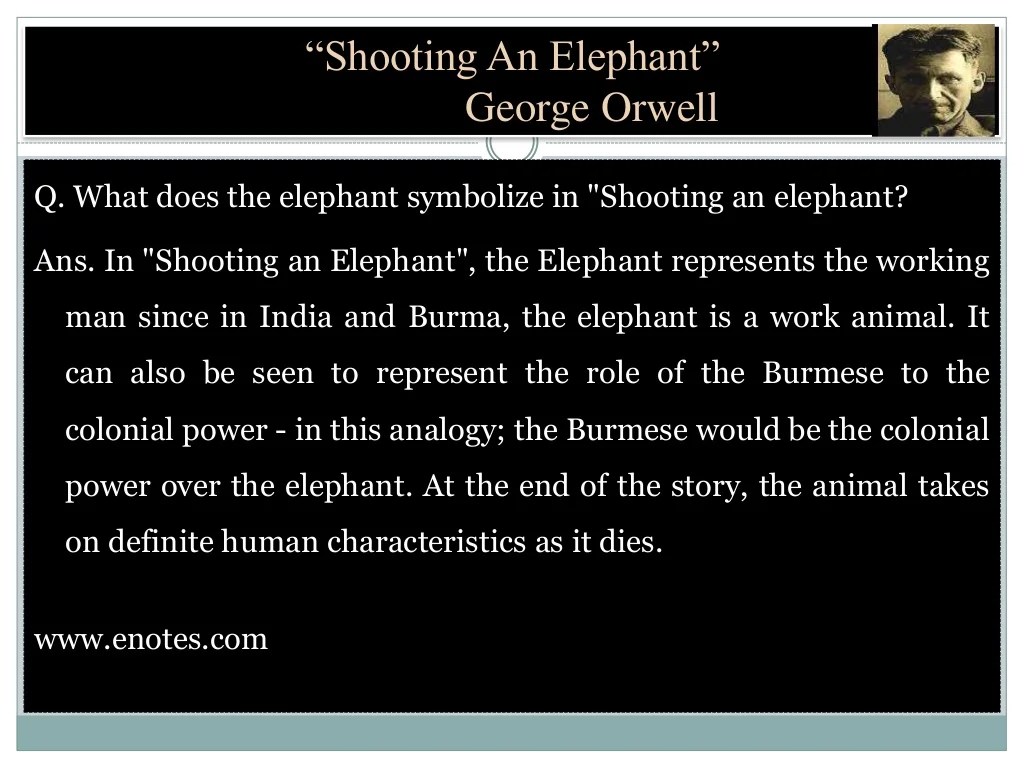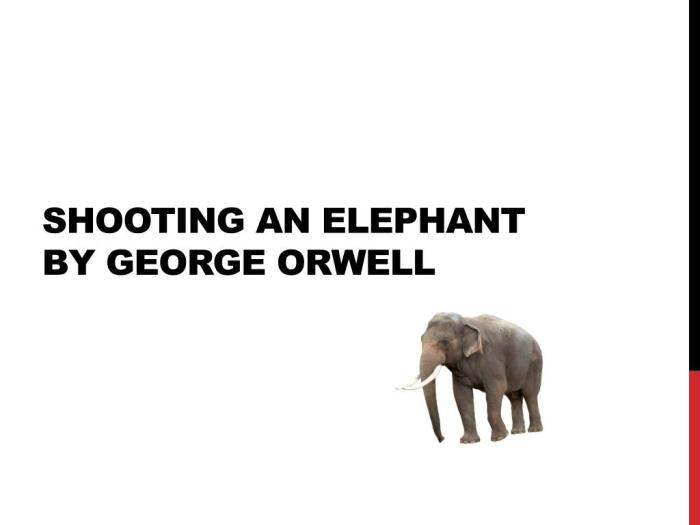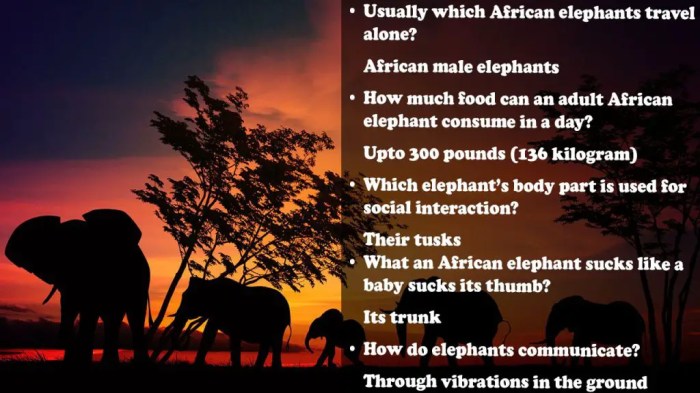Shooting an elephant question answers – Delving into the complexities of George Orwell’s “Shooting an Elephant,” this comprehensive guide provides insightful answers to frequently asked questions, unveiling the story’s historical, ethical, and literary significance.
From the narrator’s motivations to the story’s critique of imperialism, this analysis offers a profound understanding of Orwell’s masterpiece.
Historical Context

Elephant hunting played a significant role in colonial Burma, as elephants were highly valued for their ivory and labor. The British Empire’s demand for ivory led to a sharp decline in elephant populations, as hunting became a lucrative business for both British and Burmese hunters.
Social and economic factors also influenced elephant hunting. In rural areas, elephants often raided crops and caused damage to property, leading to resentment among local communities. Additionally, the decline in traditional hunting practices due to British colonial rule left many Burmese hunters with limited economic opportunities, making elephant hunting an attractive alternative.
The Shooting of an Elephant
The narrator’s inner conflict arises from his realization that shooting the elephant is unnecessary and unethical. He initially attempts to avoid killing the animal, but succumbs to pressure from the crowd and his own fear of appearing weak.
The ethical implications of the narrator’s actions are profound. He recognizes the inherent cruelty of killing an innocent animal, yet he rationalizes his actions as a necessary evil to maintain order and avoid potential harm to others.
The story explores themes of imperialism, power, and responsibility. The narrator’s decision to shoot the elephant reflects the broader power dynamics of colonialism, where the British wield absolute authority over the Burmese people. The incident also highlights the narrator’s moral responsibility as a representative of the British Empire and his struggle to reconcile his personal values with the demands of his role.
Character Analysis

The narrator is a complex and introspective character. He is initially portrayed as a detached and cynical observer, but as the story progresses, his inner turmoil and moral struggles become evident.
The narrator’s experiences in Burma shape his character by exposing him to the harsh realities of colonialism and the moral ambiguities it creates. He becomes disillusioned with the British Empire and its oppressive policies, and his experiences lead him to question his own role in the colonial system.
The elephant symbolizes both the beauty and vulnerability of the natural world, as well as the destructive power of colonialism. The narrator’s decision to shoot the elephant represents his own complicity in the destruction of both.
Literary Techniques

The story employs various literary devices to convey its themes and meaning. Foreshadowing is used to hint at the tragic outcome of the elephant’s shooting. Symbolism is employed to create a deeper level of meaning, with the elephant representing both the natural world and the oppressed Burmese people.
Irony is used to highlight the narrator’s inner conflict and the absurdity of his situation. The story’s structure and narrative style contribute to its impact by creating a sense of immediacy and urgency.
Cultural and Social Commentary

The story provides a powerful critique of imperialism and colonialism. It exposes the hypocrisy of the British Empire, which claims to bring civilization to the colonies while exploiting and oppressing the local population.
The story also offers insights into the nature of power and oppression. The narrator’s decision to shoot the elephant highlights the arbitrary and often unjust use of power by those in authority. The story’s relevance extends to contemporary issues of social justice and human rights, as it continues to resonate with readers who struggle against oppression and seek to uphold the dignity of all.
User Queries: Shooting An Elephant Question Answers
What are the ethical implications of the narrator’s actions in “Shooting an Elephant”?
The narrator’s decision to shoot the elephant raises questions about the ethics of killing an animal that poses no immediate threat. He grapples with the moral weight of his actions, recognizing the inherent power imbalance between himself and the elephant.
How does the story critique imperialism and colonialism?
“Shooting an Elephant” exposes the oppressive nature of British imperialism in Burma. The narrator’s experiences highlight the ways in which colonial powers exploit and control local populations, often with devastating consequences.
What is the significance of the elephant as a symbol in the story?
The elephant represents both the beauty and danger of the natural world, as well as the complexities of human nature. Its presence forces the narrator to confront his own fears, prejudices, and responsibilities.